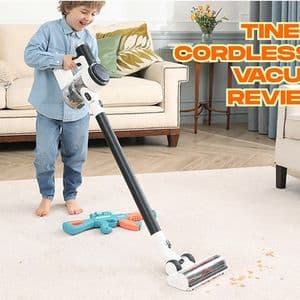When it comes to keeping a home clean, vacuums are one of the most essential tools. But here’s the challenge — with so many models available, how can you tell which ones are worth your investment? Let’s break down the core qualities that define good vacuums so you can make a choice with confidence.
What Defines a Good Vacuum?
A vacuum is more than just a motor and a dust container. Good vacuums combine strong suction, efficient filtration, ease of use, and durability. These qualities ensure not only cleaner floors but also a healthier indoor environment.
Think about it this way: the right vacuum doesn’t just remove visible dirt. It also captures dust particles, allergens, and pet dander, keeping your air cleaner. Over time, that can make a noticeable difference in comfort and health.
Types of Vacuums and Their Strengths
Different homes benefit from different vacuum designs. Uprights are powerful and cover large carpeted areas quickly, while canisters offer flexibility for stairs and tight spaces.
For quick cleanups or smaller homes, a good vacuum cleaner in the handheld or compact stick format can be incredibly practical. Each type has trade-offs, so it’s about matching the design to your lifestyle and flooring types.
Key Features That Matter
So, what should you really look at when comparing vacuums? Let’s explore the features that make a measurable difference.
1. Suction Power and Efficiency
The motor’s strength and the design of the airflow pathway determine how well a vacuum picks up dirt. Higher suction is important, but efficiency is just as critical — a well-designed head can improve pickup without requiring excessive power.
2. Filtration Systems
If you or your family members have allergies, a strong filtration system is essential. HEPA filters are widely recognized for trapping fine particles that standard filters might miss. The better the filtration, the cleaner your indoor air will be.
3. Maneuverability
Weight, handle design, and swivel heads all affect how easy a vacuum is to use. A heavy, awkward machine might clean well, but if it’s hard to push, you’re less likely to use it regularly.
4. Dust Capacity and Emptying
Smaller bins mean more frequent emptying, but large bins can make the unit heavier. Look for a balance that suits your cleaning habits. Also, consider how mess-free the emptying process is — a hygienic design prevents dust clouds.
5. Noise Levels
A quiet vacuum can make cleaning less disruptive, especially in homes with children or pets. Noise levels vary widely, even among models with similar performance.
Special Considerations for Stick and Wireless Models
Lightweight and slim, stick vacuums are ideal for quick cleanups and tight spaces. The best stick vacuum cleaner options are designed with powerful motors and long-lasting batteries, making them a good choice for smaller living areas or as a secondary cleaning tool.
Wireless vacuum models offer convenience by eliminating cords altogether. This gives you more freedom to move between rooms without plugging and unplugging, but battery life and charging time are important to evaluate before buying.
Durability and Long-Term Value
A good vacuum is an investment, so durability matters. High-quality components, solid construction, and readily available replacement parts can extend the life of your vacuum.
It’s worth considering how often you clean and the surfaces you deal with. A busy household with pets and multiple floor types will need a sturdier machine than a single-occupant apartment with minimal mess.
Maintenance and Care
Even the most advanced vacuum will underperform without regular maintenance. Cleaning filters, checking for blockages, and replacing worn parts are essential steps to maintain suction and efficiency.
Think of it as car maintenance: a small amount of routine care prevents larger, costlier problems in the future.
Matching a Vacuum to Your Home’s Needs
Every home is different. A carpeted townhouse with pets has different needs from a modern loft with mostly hard flooring. Matching your vacuum’s design and features to your space can make cleaning faster, easier, and more thorough.
Ask yourself: Do you have stairs? Pets? Allergy sufferers in the home? These answers will guide you toward the right type and features without the guesswork.
Final Thoughts
Good vacuums are not just about brand reputation or price tag. They’re about matching strong performance with the right features for your home. By focusing on suction, filtration, maneuverability, durability, and maintenance needs, you can select a model that truly supports a cleaner, healthier living space.
Once you know what makes a vacuum effective, choosing one becomes less of a gamble and more of an informed decision — one that will pay off every time you turn it on.










